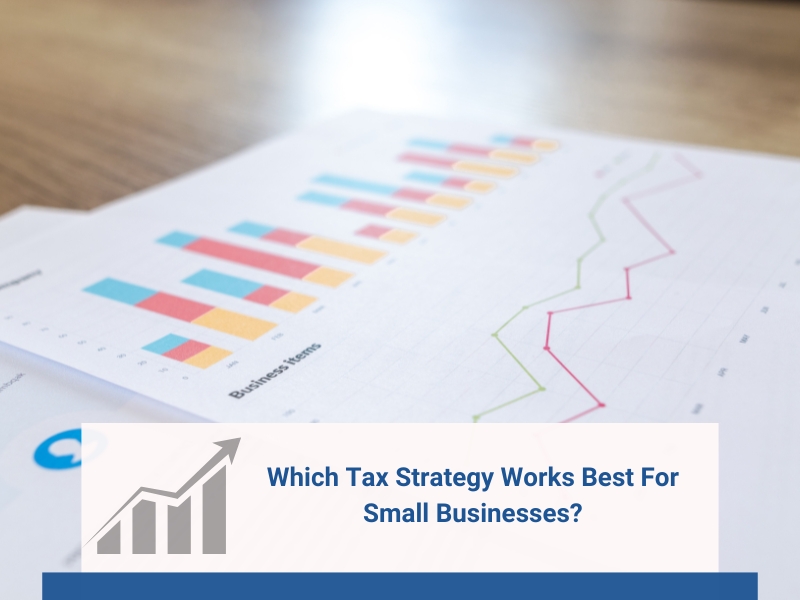Running a small business is rewarding but comes with its fair share of challenges—tax management being one of the most critical. Small business owners can easily be overwhelmed by compliance requirements without a solid tax strategy and pay more tax than necessary.
This article explores the critical tax strategies that small businesses can adopt, tailored specifically for those operating in Perth, Western Australia. Whether starting or looking to improve your tax practices, you’ll find valuable insights to help your business thrive.
What is a tax strategy, and why is it essential for your small business?
A tax strategy is a carefully planned approach to managing your business’s tax obligations. It involves identifying potential deductions, credits, and exemptions to minimise tax liability. A well-crafted tax strategy can provide several benefits, including:
- Reduced tax burden: You can lower your overall tax bill by maximising deductions and credits.
- Improved cash flow: Effective tax planning can help you manage your cash flow more efficiently.
- Enhanced financial stability: A solid tax strategy can contribute to the long-term economic health of your business.
What factors should you consider when choosing a tax strategy for your business?
Your business structure will significantly influence your tax obligations. Sole proprietors, partnerships, corporations, and trusts have unique tax rules. Consider the following factors when choosing a tax strategy:
- Business structure: Understand the tax implications of your current or desired business structure.
- Income level: Your income will determine your tax bracket and the applicable tax rates.
- Business goals: Your short-term and long-term objectives will influence your tax planning decisions.
What are the critical tax deductions small businesses should be aware of?

Numerous tax deductions are available to small businesses. Some of the most common include:
- Business expenses: Deductions for expenses related to running your business, such as rent, utilities, and supplies.
- Depreciation: Deductions for the wear and tear of business assets.
- Employee wages and benefits: Deductions for salaries, wages, and employee benefits.
- Charitable contributions: Deductions for donations to qualified charities.
- Research and development expenses: Deductions for research and development activities expenses.
Understanding the available tax deductions for small businesses can significantly reduce their taxable income and improve their overall financial health.
Should you consider tax planning throughout the year?
Yes, tax planning should be an ongoing process. By staying proactive, you can identify opportunities to minimise your tax liability and optimise your financial performance. Consider the following strategies:
- Quarterly tax payments: Ensure timely and accurate quarterly tax payments to avoid penalties.
- Regular reviews: Conduct regular reviews of your tax strategy to adapt to changes in your business and tax laws.
- Professional advice: Seek guidance from a qualified tax professional to ensure you take advantage of all available deductions and credits.
How can you legally minimise your small business tax bill?
Here are some strategies to legally reduce your small business tax bill:
- Choose the proper business structure: As mentioned earlier, your business structure can significantly impact your tax obligations.
- Maximise deductions: Identify and claim all eligible deductions to reduce taxable income.
- Contribute to retirement plans: Contributions can reduce your taxable income.
- Consider tax-advantaged investments: Explore investment options that offer tax benefits.
What role does cash flow play in your tax strategy?
Cash flow is a crucial factor in your tax strategy. Adequate cash flow ensures you can meet your tax obligations on time and avoid penalties. Consider the following:
- Tax payments: Ensure you have sufficient cash flow to make timely tax payments.
- Tax planning: Incorporate tax planning into your overall cash flow management strategy.
- Professional advice: Consult a financial advisor to optimise cash flow and tax planning.
Should you hire a bookkeeper for your small business?
Absolutely. Many small business owners underestimate the value of hiring a professional bookkeeper, especially regarding taxes. Bookkeepers offer valuable services that make tax season far less stressful. Here’s why hiring one is a good idea:
- Accuracy and compliance: A bookkeeper ensures your financial records are accurate and compliant with ATO regulations, reducing the chance of errors.

- Time-saving: Running a business is time-consuming enough. A bookkeeper lets you focus on what you do best—running your business—while they handle the day-to-day financial tasks.
- Peace of mind: Knowing that a professional handles your bookkeeping and tax obligations gives you peace of mind and ensures nothing is missed.
How can a bookkeeper assist you with small business taxes?
A bookkeeper can be invaluable during tax season and throughout the year. Their role in your tax strategy includes:
- BAS preparation and lodgement: Bookkeepers can prepare and lodge your BAS, ensuring you remain compliant with the ATO and avoid penalties.
- Payroll processing: Bookkeepers manage payroll, including Single Touch Payroll (STP) filing and superannuation payments, keeping you on track with ATO requirements.
- Expense tracking: Bookkeepers meticulously track all business expenses, ensuring that you maximise every deduction you’re entitled to claim.
- Cash flow management: Bookkeepers maintain accurate financial records, which can help you better understand your cash flow and make tax planning more accessible and practical.
Accurate bookkeeping and strategic tax planning go hand-in-hand, helping you maximise tax deductions and maintain precise financial records.
What are the long-term benefits of having a solid tax strategy?
A well-crafted tax strategy can offer numerous long-term benefits, including:
- Improved financial health: A reduced tax burden can contribute to the overall economic stability of your business.
- Enhanced growth opportunities: Increased cash flow can be reinvested into your business to fuel growth.
- Peace of mind: Knowing that your tax obligations are managed effectively can provide peace of mind.
Partner with Up2date Administration for expert tax advice
If managing your business’s tax strategy seems overwhelming, Up2Date Administration can help. With over 15 years of experience, Up2Date Administration offers personalised bookkeeping, BAS agent, and accounting services for small to medium-sized businesses in Perth. We understand the unique challenges SMBs face and provide tailored solutions to save you time, money, and stress.
More than just a service provider, we’re your business partner. Trust us to optimise your tax strategy, streamline your operations, and help your business thrive.
Contact Up2Date Administration for professional bookkeeping services that keep your business on track all year round.

